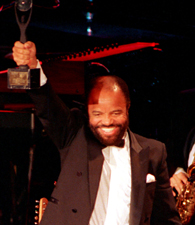Motown Records founder Berry Gordy Jr. brought black music to white audiences. He premiered a new sound, and launched the careers of such artists as Marvin Gaye, Smokey Robinson, Stevie Wonder and the Supremes.
Berry Gordy’s Early Days
Berry Gordy Jr. was born in Detroit, Michigan, on November 28, 1929. Gordy’s father was a plastering contractor and his mother was an insurance agent. Gordy dropped out of high school in his junior year, and in 1948 became a professional featherweight boxer, winning 12 Golden Glove fights in his three-year career. Gordy was forced to retire from boxing in 1951 when he was drafted into the Korean War. After being discharged from the army, Gordy returned to Detroit and opened a jazz record shop called Three-D Record Mart. The store failed, but Gordy remained committed to being a part of the record industry: he worked on an assembly line at the Ford Motor Company and writing songs for local artists in his spare time.
Sources in this Story
- BookRags (World Encyclopedia of Biography): Berry Gordy, Jr. Biography
- AllMusic: Berry Gordy, Jr. Biography
- Rock and Roll Hall of Fame: Berry Gordy, Jr.
- Time magazine: Business Notes Acquisitions
- The Times: Dreamgirls makers apologise to Motown record label
- Oakland Press: Motown founder Berry Gordy Jr. visits “Motown The Musical” at the Fisher
Gordy’s Notable Accomplishments
In 1957, Gordy sold his first notable song, “Reet Petite,” which was recorded by Jackie Wilson. Gordy wrote and sold several more modest hits, and after a feud with Jackie Wilson’s manager over royalties, Gordy decided to open his own label with money borrowed from his family. Gordy named his label Tamla Records and made an office and recording studio at his home in Detroit, dubbing the house “Hitsville U.S.A.” During this time, Gordy became the manager for Smokey Robinson and his group, the Miracles, co-writing the hit single “Get a Job.” In 1960, Hitsville produced and released a single with the Miracles, “Money (That’s What I Want)” followed by the hits “Shop Around” and “Way Over There.”
Tamla Records and its parent label, Motown, were soon inundated with talented musicians who performed songs written by Gordy’s team. Marvin Gaye, The Four Tops, The Temptations, Stevie Wonder and Smokey Robinson all recorded songs with Motown. Gordy started holding seminars in which all his musicians were required to learn skills such as stage presence and public conduct. Gordy oversaw every detail of Motown, and his strictness paid off: in 1966, 75% of all songs that made the national charts in the United States were released by Motown. Motown’s slogan became “the sound of young America.” In the 1960s, Gordy developed the Supremes, with Diana Ross as the lead singer. The Supremes became one of the best-selling female groups of all time. In 1970, after a lawsuit with several of his songwriters, Gordy moved Motown to Los Angeles and continued to work with Diana Ross and his other acts, including the newly signed Jackson 5.
The Man and his Work
- “Motown: Music, Money, Sex, and Power” by Gerald L. Posner
- “Smokey Robinson & the Miracles: The Ultimate Collection”
- “Every Great Motown Hit of Marvin Gaye”
- “The Supremes: Gold”
- “Lady Sings the Blues” (DVD)
The Rest of the Story
In Los Angeles, Gordy produced the film “Lady Sings the Blues” (1972) starring Diana Ross, and in 1975, he directed Ross in “Mahogany.” But Motown was no longer the successful business it once was, and in 1988, Gordy sold Motown to MCA Records for $61 million. Gordy created one of the most successful African-American-owned businesses in history, and is largely responsible for bringing black music to white audiences. In 1975, Gordy was given a lifetime achievement award at the American Music Awards, and in 1988, Gordy was inducted into the Rock and Roll Hall of Fame. In 2007, the makers of the film “Dreamgirls” apologized to Gordy and others in ads that were taken out in Daily Variety and Hollywood Reporter. Some had criticized the movie as not portraying Gordy and Motown Records in a good light.
Gordy created “Motown The Musical,” which was based on his 1994 memoir. It opened on Broadway in 2013.
This article was originally written by Caleb March; it was updated November 27, 2017.











